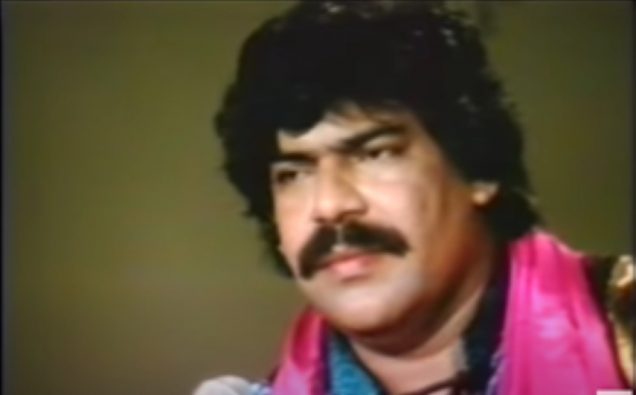
Popular Punjabi folk singer Shaukat Ali passed away in Lahore after liver failure on Friday, leaving behind a legacy of passion-filled singing that included classic Punjabi poem, Kalam-e-Iqbal and ghazals.
Ali’s protracted illness was the result of complications that worsened in the last few months. He was 77 and had been under treatment at Pakistan Army’s Combined Military Hospital (CMH) in Lahore.
Ali grew up in a family of artists in Gujrat, with a widely respected elder brother Inayat Ali Khan, whose support helped hone his musical talent. Ali shot to prominence with his devotional voice in the 1960s.
Once Ali found his own style with a high-pitch voice, he performed brilliantly in wide-ranging genres of music, winning acclaim and tremendous popularity.
In popular Punjabi culture, where classic poets are revered for their spiritual insight and simple dialogue style poems, Shaukat Ali achieved excellence at a time when other legends like Alam Lohar, also from the same Punjab region, were already ruling the scene.
Shaukat Ali’s delivery of devotional epics including Heer Waris Shah and Saif ul Maluk and Challa brought him massive popular praise. In time, Shaukat Ali’s became synonymous with the recitation of the two masterpieces of poet Waris Shah and Mian Muhammad Bux.
The legendary artist also sang patriotic songs “Saathio Mujahido” and the national song “Apna Parcham Aik, Apna Quaid-i-Azam Aik Hai” – during his peak years. The numbers gain huge popularity at political platforms as the Pakistan Peoples Party of late prime minister Benazir Bhutto used Saathio Mujahido to drum up support in the late 1980s.
In the 1980s and 1990s, Shaukat Ali sang some of the greatest masterpieces of poet Allama Iqbal including Khudi Ka Sir e Nihan La Ilaha Il Allah and Nigah Faqr mein shaan e Sikandri Kya – a feat which brought him legendary status. Iqbal’s prayer poem Ya Rab Dil e Muslim Ko remains a treasure of Pakistani music and culture.
Among the many awards, Shaukat Ali won for his characteristic singing art was the Pride of Performance.










